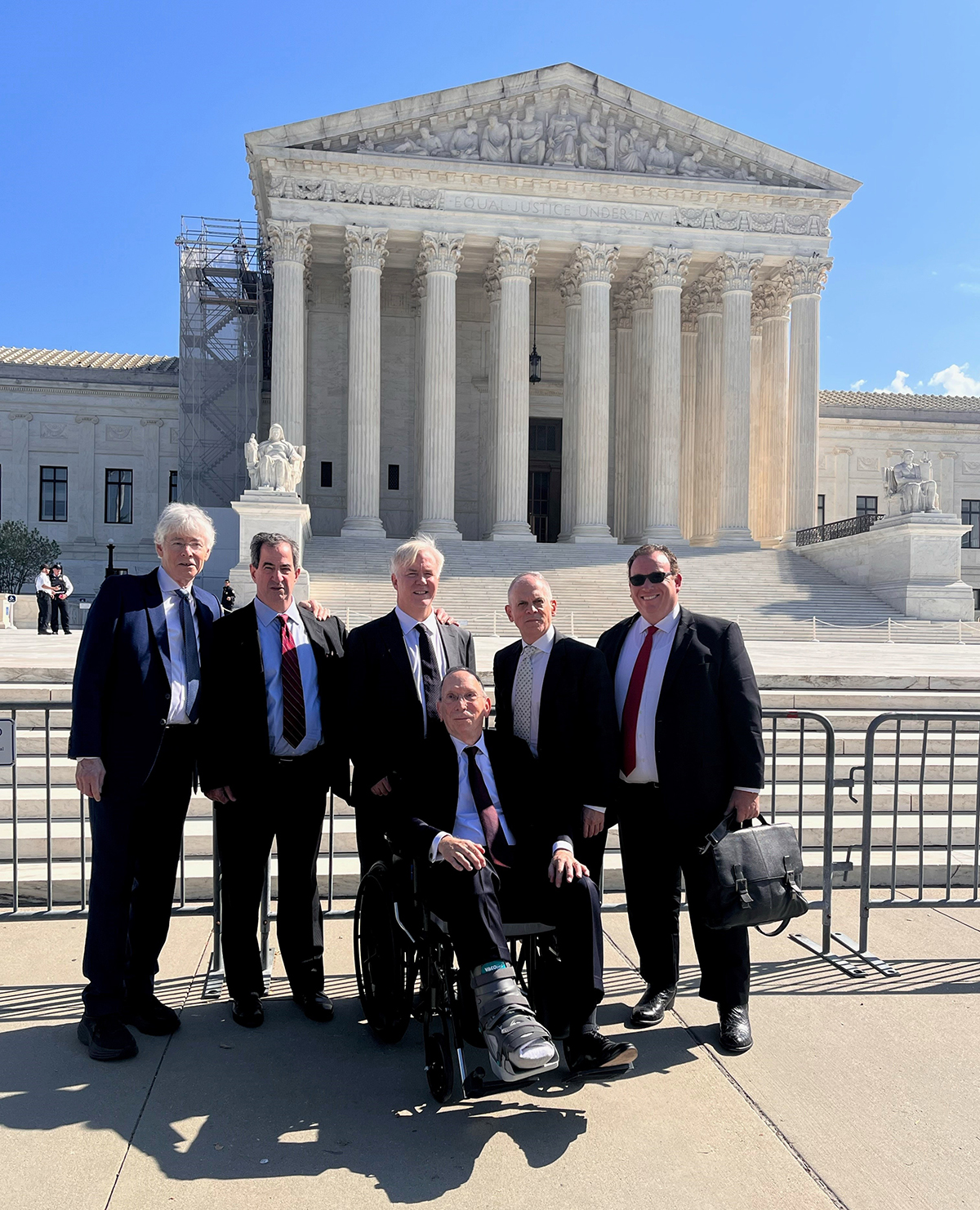On February 8, 2024, the Supreme Court of the United States, in a unanimous decision, sided with Stulberg & Walsh, LLP in holding that a whistleblower claiming that his discharge violated the federal Sarbanes-Oxley Act (“SOX”) need not show that his employer acted with retaliatory intent. In so doing, the Court reversed a Second Circuit Court of Appeals ruling, which had rejected a $903,300 jury verdict finding that UBS Securities, LLC had illegally fired Trevor Murray, the firm’s client, because he had complained that the investment bank had pressured him to skew his research reports to support its business interests.
When the decision was issued, Stulberg & Walsh, LLP’s founding partner, Robert B. Stulberg, commented: “This decision represents a resounding vindication of Trevor Murray’s courageous 12-year effort to challenge his discharge by UBS Securities in retaliation for protected whistleblowing. It also represents the Supreme Court’s uncompromising recognition that Sarbanes-Oxley – and similar statutes – were designed to empower whistleblowers to come forward in order to protect public health, safety and security. Now that Mr. Murray’s rights have been firmly secured under the standards Congress established, we look forward to the day when he finally receives the full and fair remedies to which he is entitled.”
The case is entitled Trevor Murray v. UBS Securities LLC et al., case number 22-660, before the Supreme Court of the United States.
Trevor Murray’s legal team after oral argument before the U.S. Supreme Court
Standing, from left to right: Robert L. Herbst of Herbst Law PLLC, Scott A. Korenbaum, Patrick J. Walsh of Stulberg & Walsh, LLP, Trevor Murray, Benjamin J. Ashmore Sr. of Herbst Law PLLC
Seated, center: Robert B. Stulberg of Stulberg & Walsh, LLP
Not pictured: Easha Anand and Pamela S. Karlan of the Stanford Law School Supreme Court Litigation Clinic
Read more news articles about Murray v. UBS here:
- Decision in Murray v. UBS Securities, LLC et al.
- High Court Sides With Whistleblower Against UBS (Law360)
- US Supreme Court in UBS Case Makes It Easier for Whistleblowers to Win Suits (Reuters)
- UBS Loses to Whistleblower in Wide-Reaching Supreme Court Decision (The Wall Street Journal)
- Supreme Court Buttresses Whistleblower Law in Defeat for UBS (Bloomberg News)
- Supreme Court Relieves Whistleblowers of Showing Employment Action Was Retaliatory (The National Law Review)
- Explaining the Murray v. UBS Securities Ruling (The National Law Review)
- Justices’ Whistleblower Ruling May Reverberate Beyond SOX (Law360)
- High Court Ruling Solidifies SOX Whistleblower Protections (Law360)

